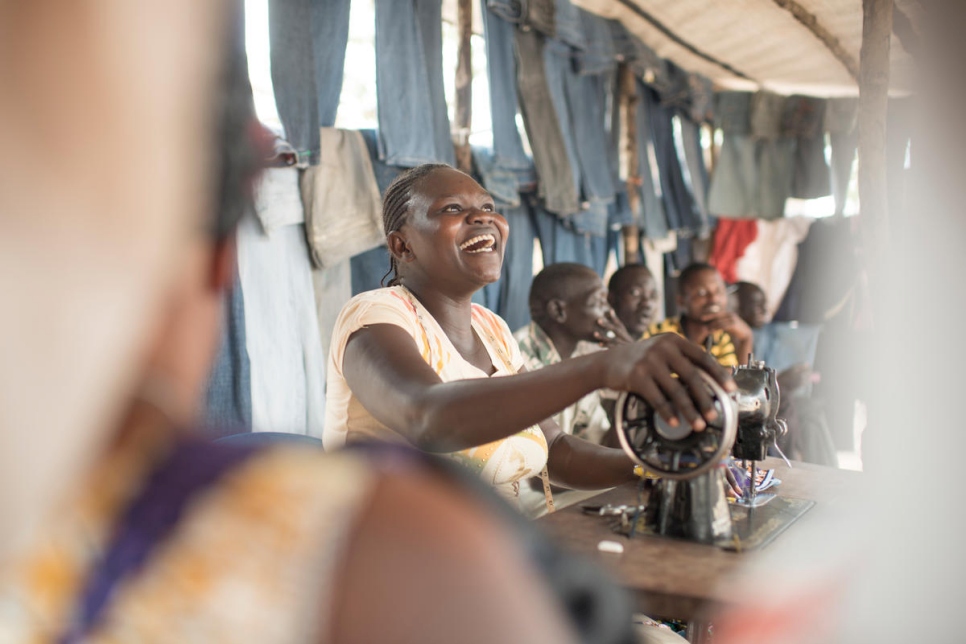
Resourceful and enterprising refugees from South Sudan have created a thriving market in a remote corner of the Democratic Republic of the Congo.
UNHCR AND MERI CAMP
Just over a year after the first refugees arrived from South Sudan in this poor and remote area, stalls offering a vast range of products and services attract traders and customers among refugees and Congolese residents alike. UNHCR, the UN Refugee Agency, supports economic activity by more than 30,000 South Sudanese refugees in Meri to help them become self-reliant.
South Sudanese refugees
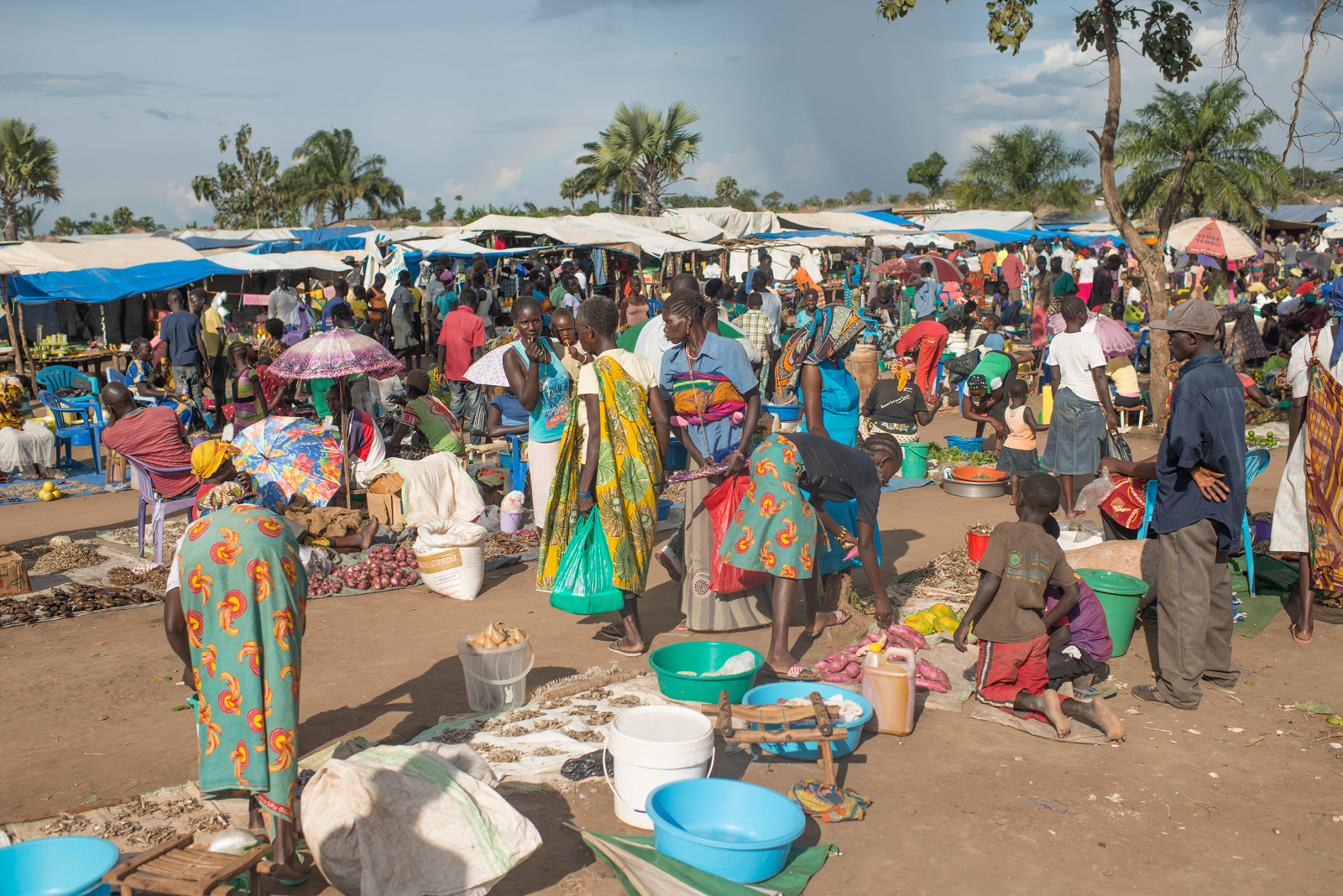
Cash grants by the World Food Programme, distributed with the support of UNHCR, help money to circulate, and the allocation of agricultural land by the local authorities and the provision of tools and seeds by UNHCR and the UN Food and Agriculture Organization contribute to the entrepreneurial activities of the settlement.
Cash grants by the World Food Programme, distributed with the support of UNHCR, help money to circulate, and the allocation of agricultural land by the local authorities and the provision of tools and seeds by UNHCR and the UN Food and Agriculture Organization contribute to the entrepreneurial activities of the settlement.
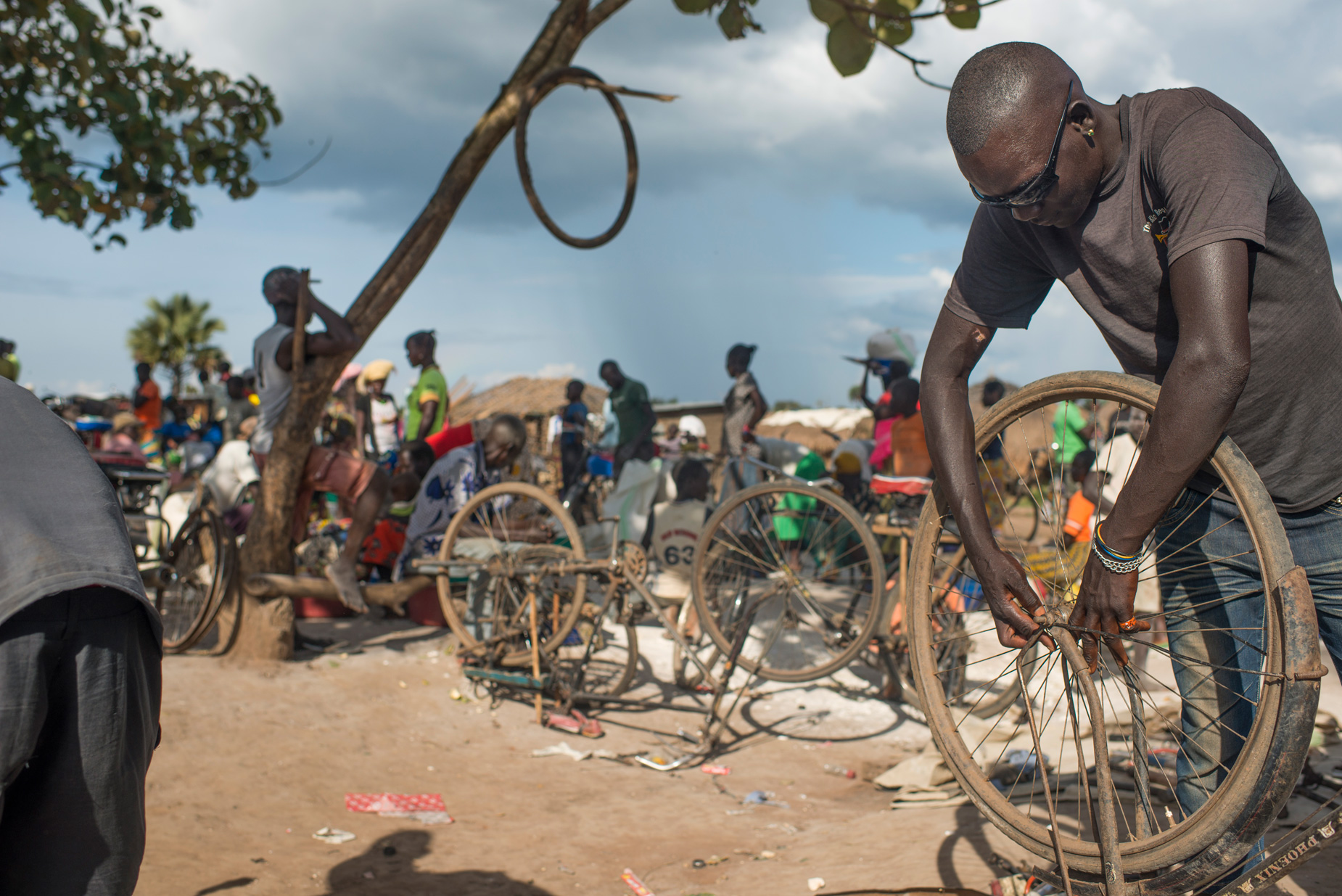
Augustino Mana, 35
The Bike Mechanic
“It costs 500 Congolese francs (about 30 US cents) to fix a bike, four times less than in South Sudan.” Augustino is one of several people who repair bicycles just outside the main market.
“It costs 500 Congolese francs (about 30 US cents) to fix a bike, four times less than in South Sudan.” Augustino is one of several people who repair bicycles just outside the main market.
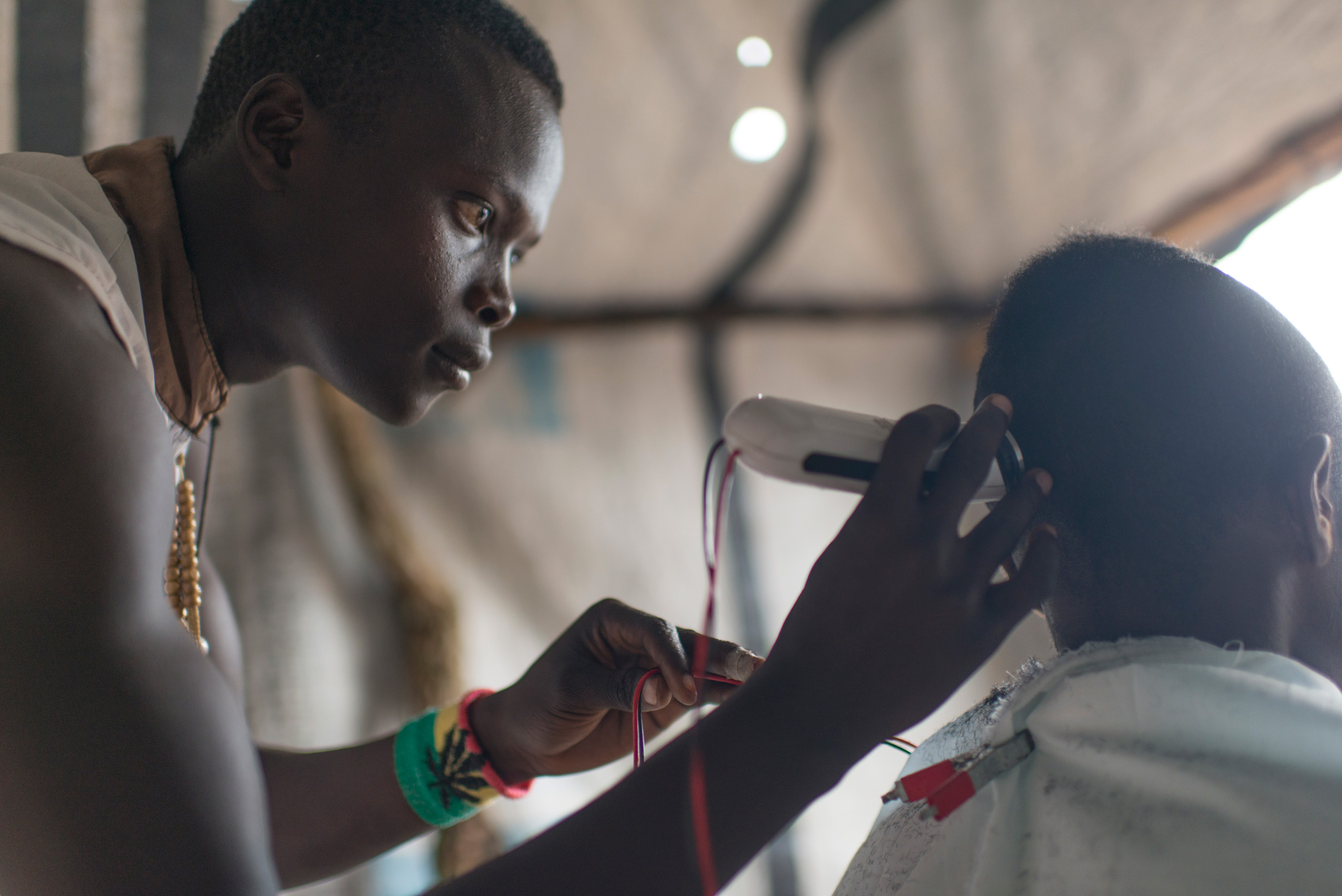
David Luate, 18
The Hairdresser
“I left because of the war. I have an average of 15 clients a day.” David bought hairdressing materials in Uganda and charges 500 Congolese francs (about 30 US cents) per customer.
“I left because of the war. I have an average of 15 clients a day.” David bought hairdressing materials in Uganda and charges 500 Congolese francs (about 30 US cents) per customer.
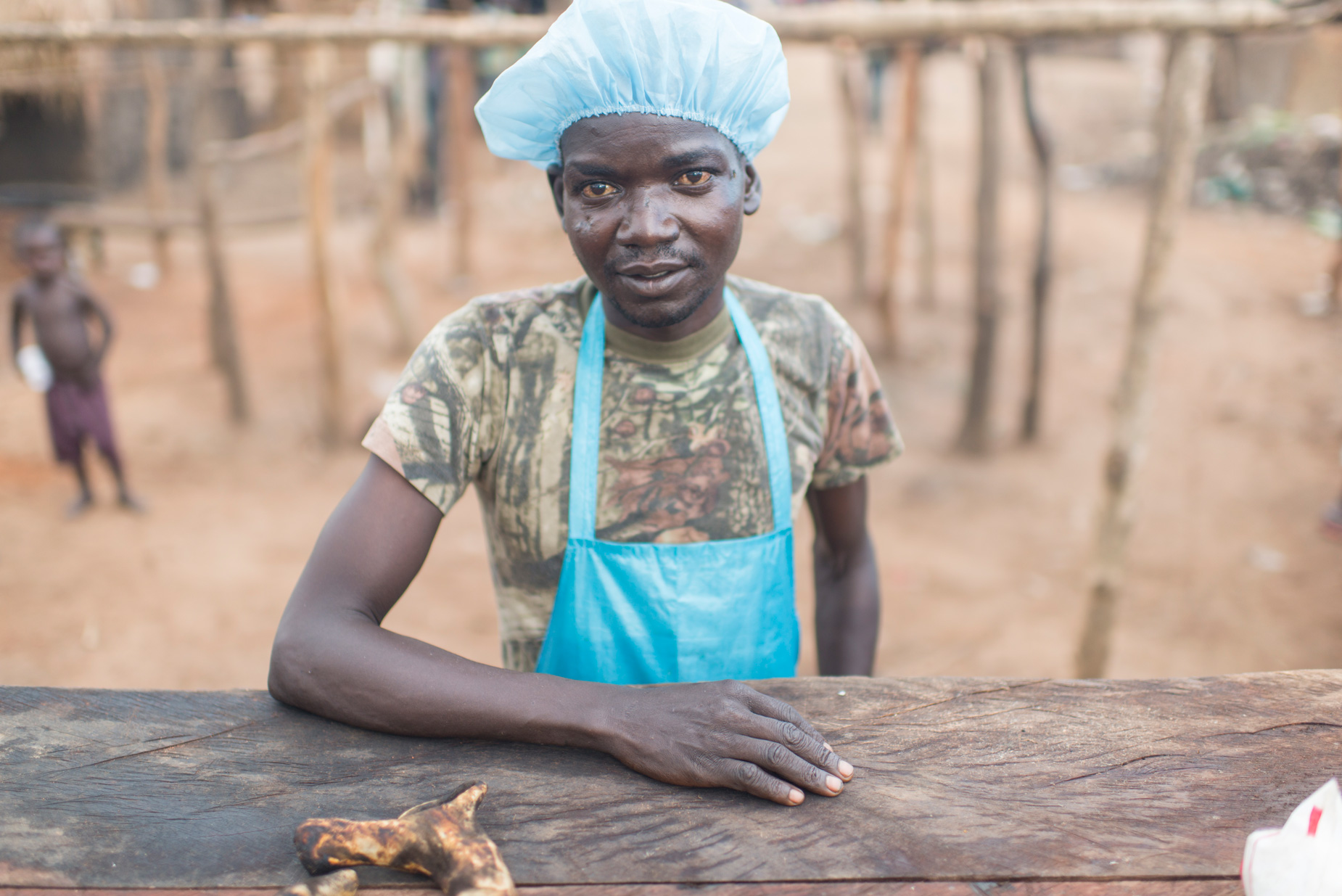
Simon Jamba Mikita, 29
The Butcher
“Life is hard here. The price of animals is expensive.” Stalls selling fresh meat line one street of the market, catering for those who can afford it.
“Life is hard here. The price of animals is expensive.” Stalls selling fresh meat line one street of the market, catering for those who can afford it.
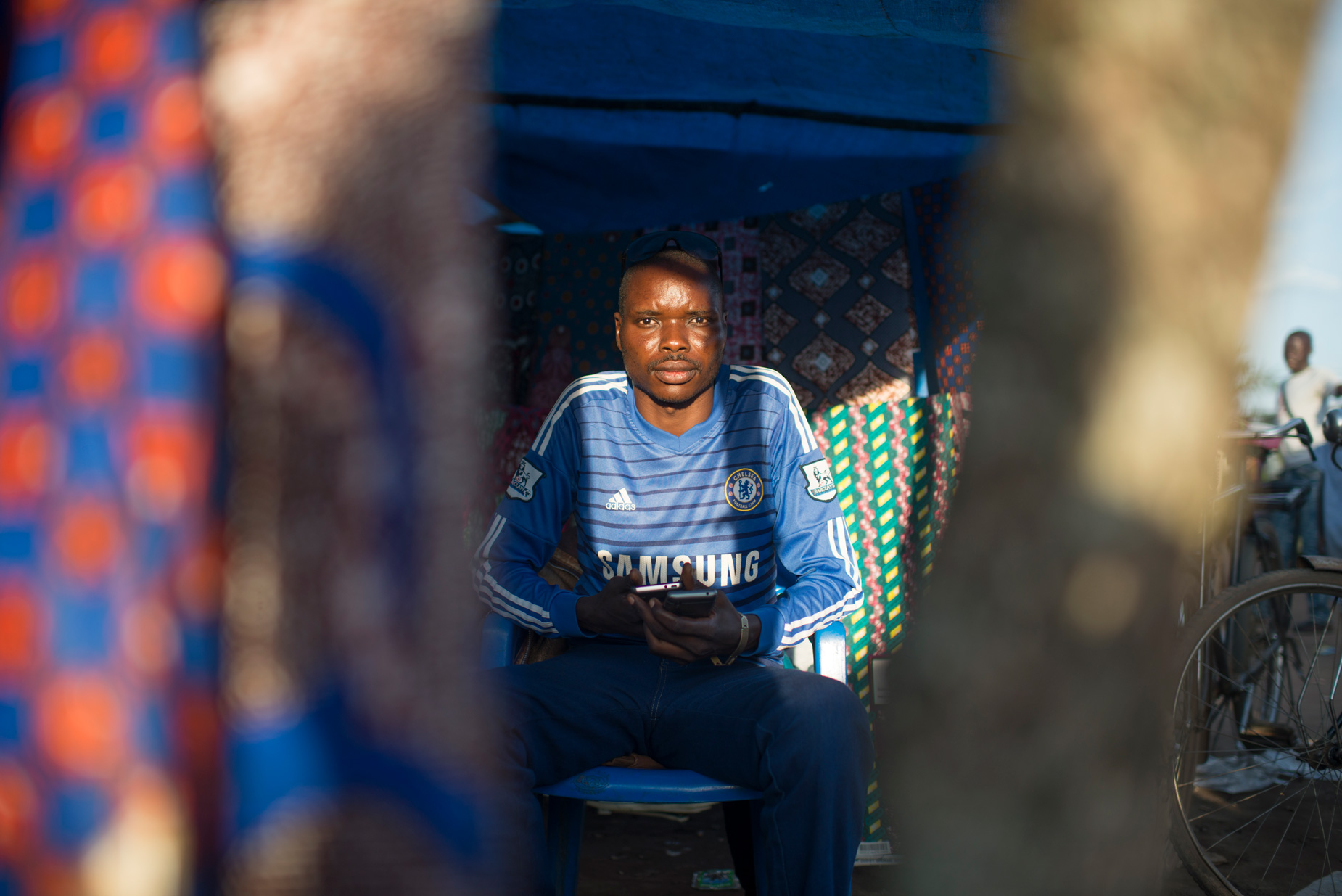
Roger Likamdo, 35
The Cloth Seller
The market has attracted vendors from among the local Congolese population. Roger sells brightly coloured lengths of cloth known as “pagnes”, worn as skirts by women or used to make other items of clothing. “We sell a lot to South Sudanese refugees. We have good relations with them.”
The market has attracted vendors from among the local Congolese population. Roger sells brightly coloured lengths of cloth known as “pagnes”, worn as skirts by women or used to make other items of clothing. “We sell a lot to South Sudanese refugees. We have good relations with them.”

Victor Garase, 23
The Photographer
Victor fled Yei in South Sudan in January 2017 after armed men killed his father. He just had time to put his camera and some clothes in a bag and run. He has opened a photo studio in a wooden shack, modest in comparison with the one he had at home.
Victor fled Yei in South Sudan in January 2017 after armed men killed his father. He just had time to put his camera and some clothes in a bag and run. He has opened a photo studio in a wooden shack, modest in comparison with the one he had at home.

Lilia Fakira, 30
The Tailor
“I make seven dresses a day, but my machine is very old. After the cash distributions, I have a lot of work.” Lilia is a refugee from Yei in South Sudan. The fact that refugees receive cash grants helps her business, the mother of four says, as they use some of the money to buy clothes.
“I make seven dresses a day, but my machine is very old. After the cash distributions, I have a lot of work.” Lilia is a refugee from Yei in South Sudan. The fact that refugees receive cash grants helps her business, the mother of four says, as they use some of the money to buy clothes.
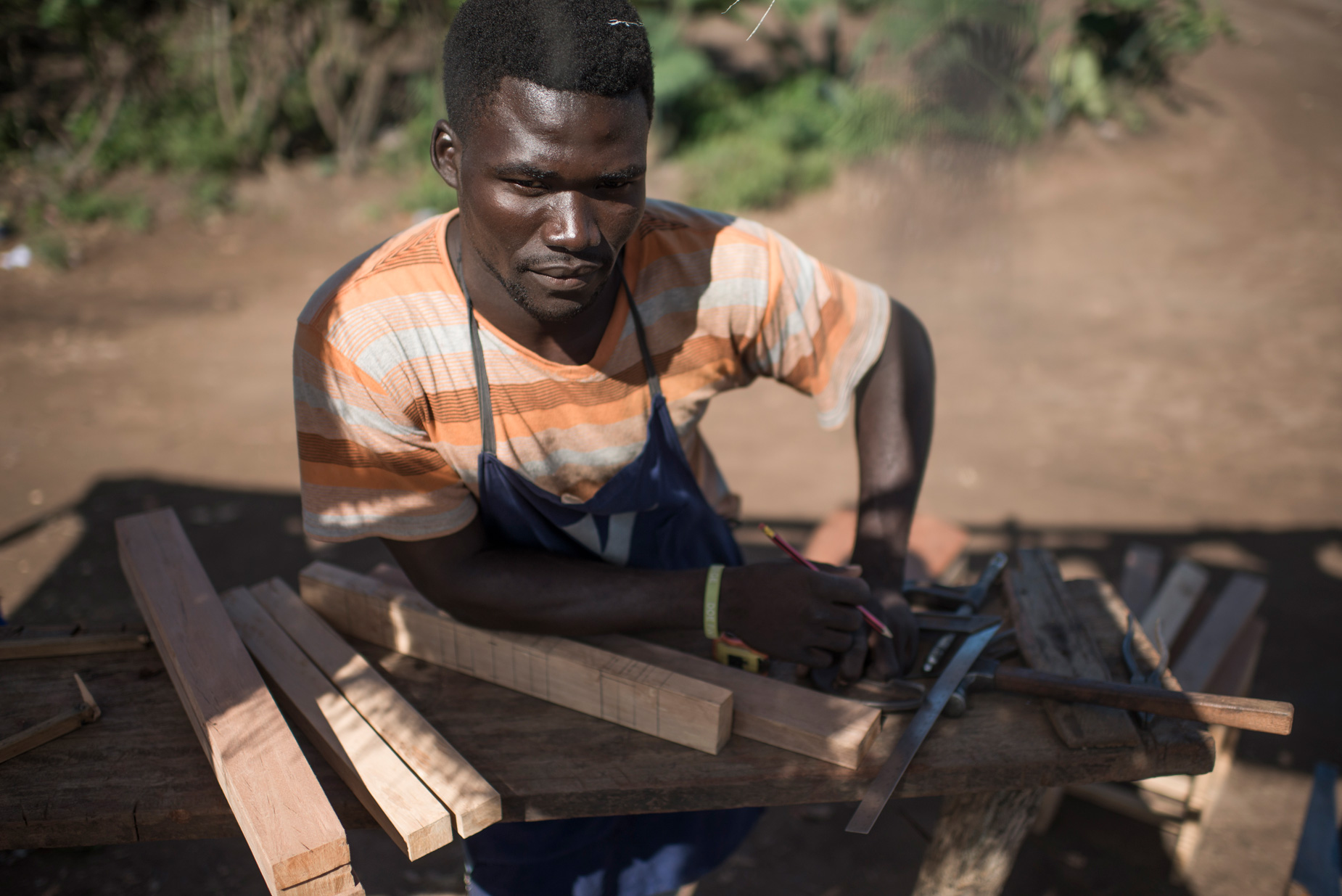
Richard Lekambo, 29
The Carpenter
Richard has set up an open-air workshop. He makes beds, chairs and tables, but he says business is tough. “It’s difficult to make a living.”
Richard has set up an open-air workshop. He makes beds, chairs and tables, but he says business is tough. “It’s difficult to make a living.”
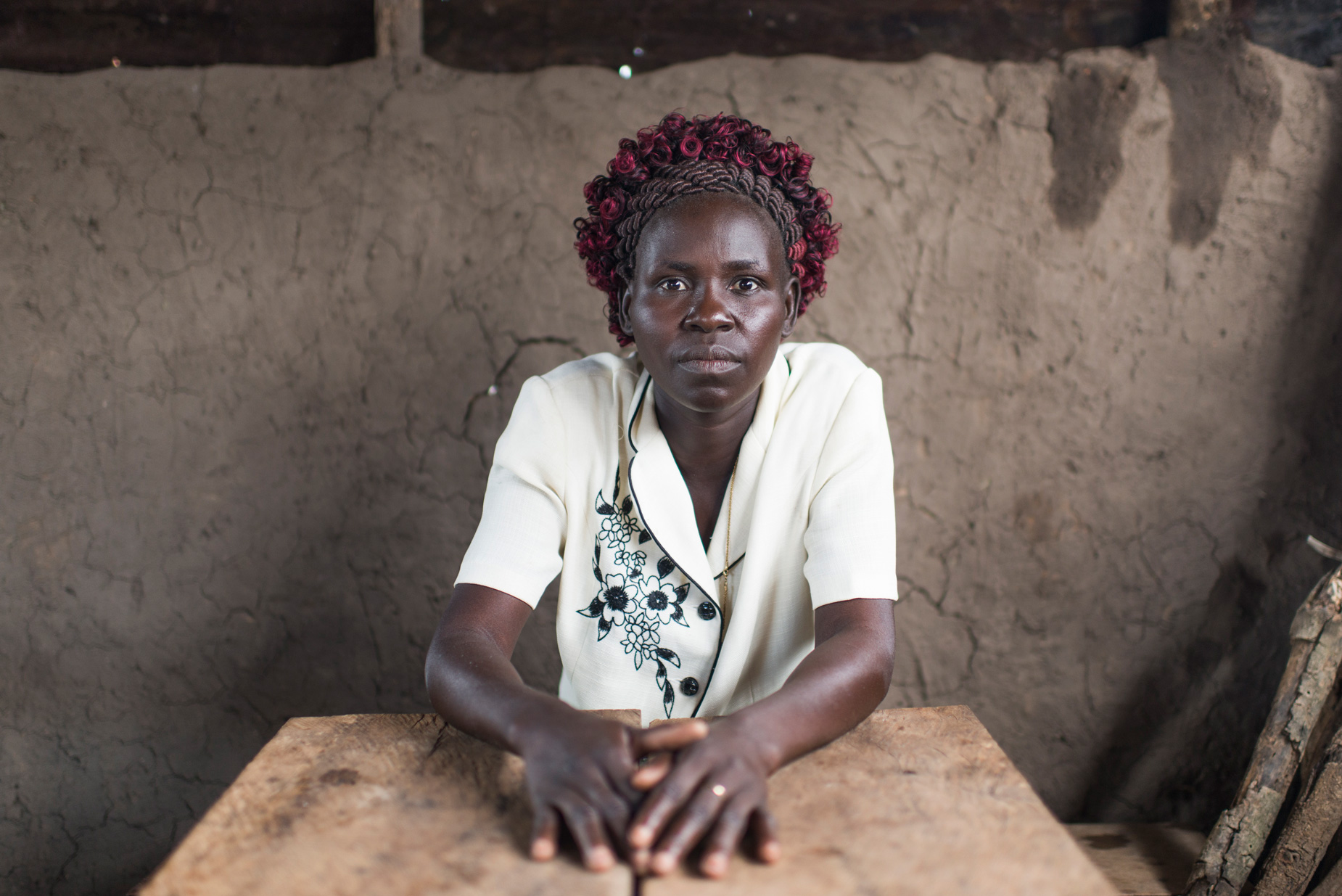
Emeline Amanjou Martine, 38
The Restaurant Owner
Emeline runs one of several small restaurants at one end of the market. She had her own restaurant in South Sudan and has just started up a new business at Meri jointly with her sister, Evelyn. A dish of beans and rice costs 2,000 Congolese francs (about US$1.30). “We do not have many clients because there is a lot of competition.”
Emeline runs one of several small restaurants at one end of the market. She had her own restaurant in South Sudan and has just started up a new business at Meri jointly with her sister, Evelyn. A dish of beans and rice costs 2,000 Congolese francs (about US$1.30). “We do not have many clients because there is a lot of competition.”
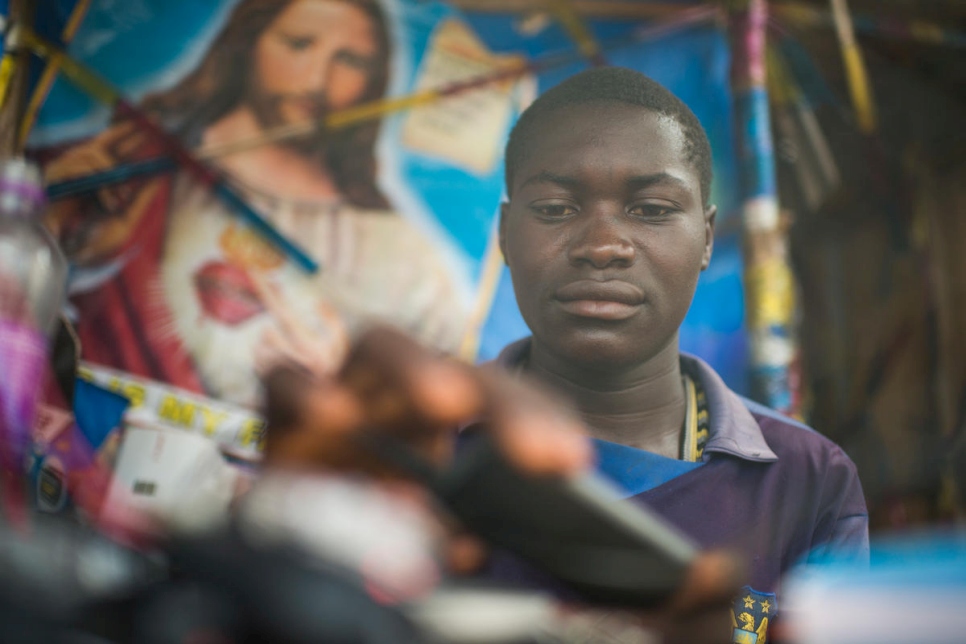
Denis Mukili, 17
The Phone-Charging Service
“I earn two hundred Congolese francs (about 13 US cents) for each phone recharge.” Denis has worked at a stall that recharges phones since he arrived in March 2017 with his brother. It is one of several such stalls in Meri, and uses power generated by solar panels.
“I earn two hundred Congolese francs (about 13 US cents) for each phone recharge.” Denis has worked at a stall that recharges phones since he arrived in March 2017 with his brother. It is one of several such stalls in Meri, and uses power generated by solar panels.
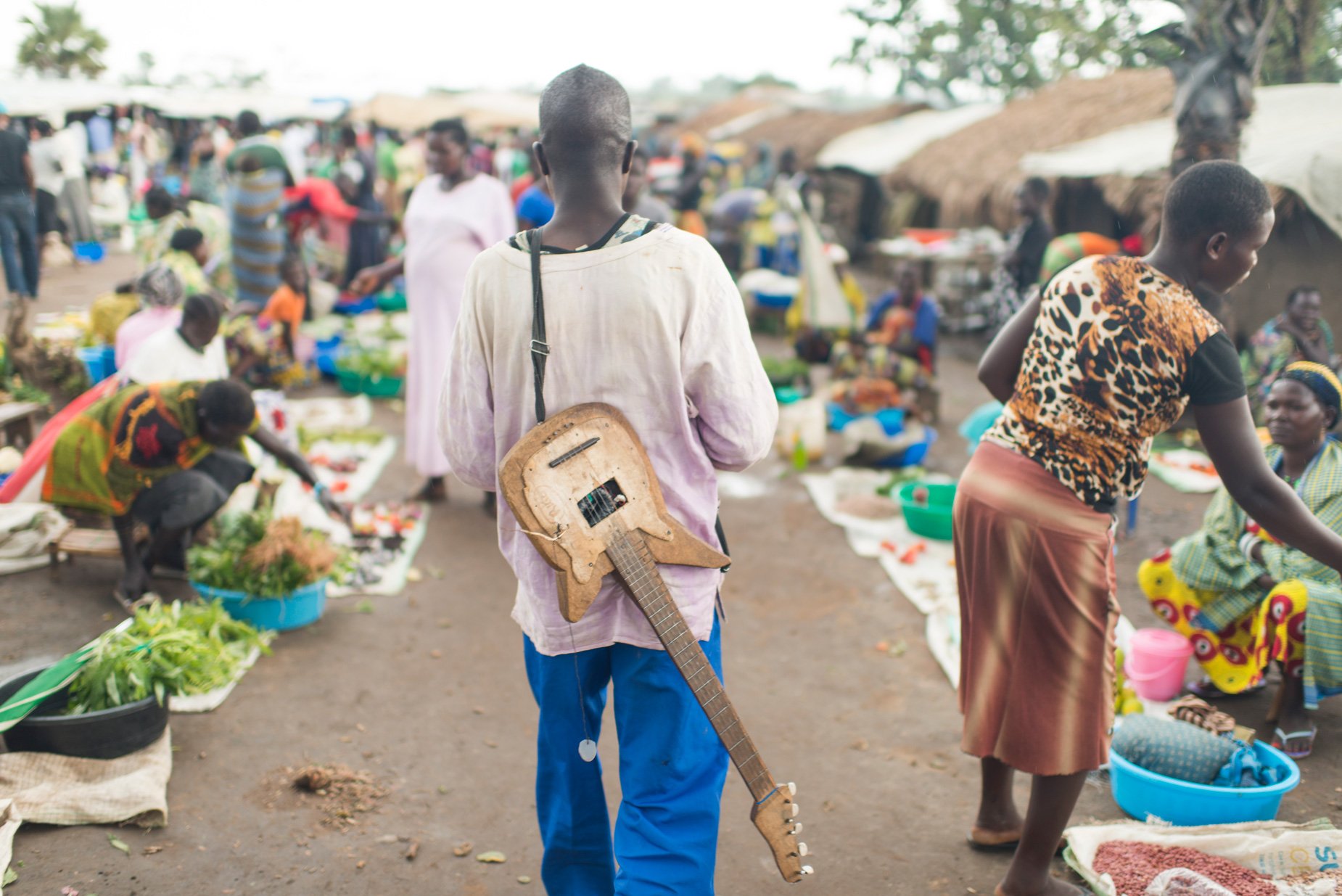
Isaac Eli, 19
The Musician
Isaac fled South Sudan in August 2017 and arrived in Meri, where he hopes to earn money playing with his band, New System. He has built his guitar himself. “Playing music is our only occupation. I hope one day we’ll get money from it.”
Isaac fled South Sudan in August 2017 and arrived in Meri, where he hopes to earn money playing with his band, New System. He has built his guitar himself. “Playing music is our only occupation. I hope one day we’ll get money from it.”
To support our work please donate now.
Learn more about the conflict in South Sudan
Data portal | Emergency page | Regional refugee response plan
